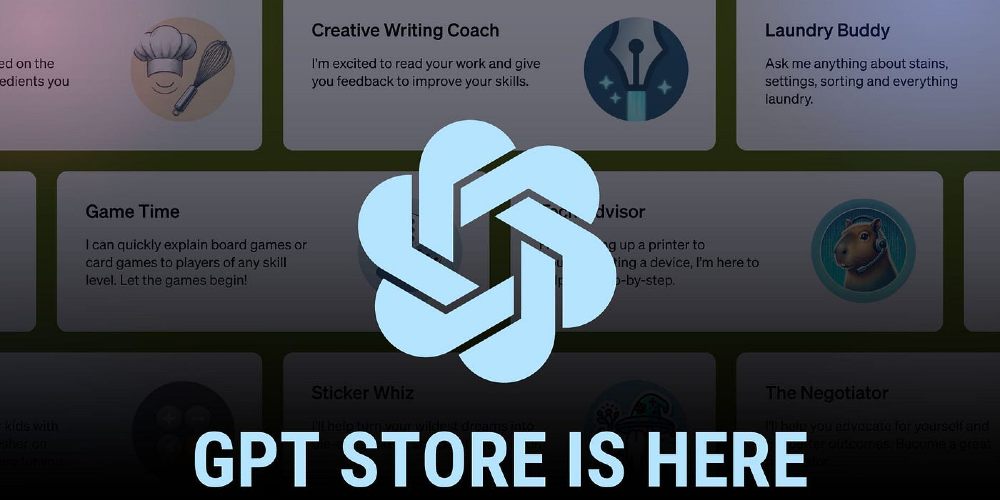OpenAI Readies Launch of GPT Marketplace for AI-Powered Applications

OpenAI is poised to debut a dedicated platform known as the GPT Store, envisioned as a marketplace for AI-driven applications powered by its next-generation models, such as GPT-4. In the upcoming week, developers crafting these applications will need to closely examine and adhere to OpenAI's revised usage policies and guidelines for branding GPT to qualify their offerings for the store. Additionally, they must complete their user profile verification and publish their applications publicly.
The concept of the GPT Store was first introduced at OpenAI's inaugural DevDay event last year but experienced a delay in December, a postponement that was likely a result of organizational changes at OpenAI. This disruption came after the board of directors had initially asked CEO Sam Altman to step down, only to reinstate him with a modified board structure following concerns from investors and employees.
Creating GPTs, the company emphasizes, doesn't necessitate expertise in coding, allowing for a vast range of complexities to be tackled by developers. One could, for instance, craft a GPT tailored to answer culinary queries by basing it on a vast compilation of cookbooks. Conversely, a GPT might be programmed to interpret a firm's unique codebases, thereby aiding developers in adhering to established coding standards and conventions.
OpenAI's proprietary tool called GPT Builder empowers developers to describe desired functionalities in simple language, which it then employs to piece together an AI conversational bot accordingly. While developers have, since shortly after DevDay, been able to create and circulate their GPTs within the confines of the ChatGPT website, the option to publicly list these creations remains in the pipeline.
Questions loom over the financial aspects of the GPT Store, particularly in terms of revenue sharing for developers. As of last November, Sam Altman and CTO Mira Murati had communicated that details on the monetization strategy were not yet concrete, and recent communications provide no further insights into compensation structures for developers.
OpenAI's gradual evolution from an AI model supplier to a full-fledged platform hasn't been entirely surprising. The organization laid the groundwork for this transition as early as March through the introduction of third-party plug-ins for ChatGPT, marking the first occasion where external developers became part of OpenAI's model ecosystem.
The introduction of GPTs signifies a democratization of AI application development, particularly for those reliant on OpenAI's suite of models. This movement may heavily disrupt consultancies that have traditionally offered similar GPT-based services for their clientele.
Whether this transformation is advantageous or not remains a subject for future observation. However, it is evident that the landscape of generative AI application development is undergoing a significant shift, with OpenAI at the forefront.












